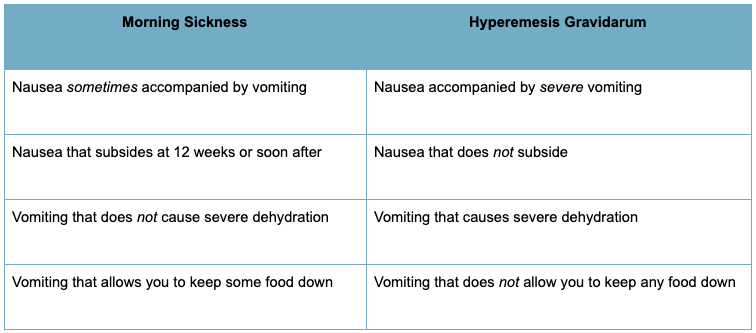If you’ve ever been pregnant or had a routine annual well-woman exam, you are probably familiar with many of the services an OB/GYN can provide. Things that immediately spring to mind include pregnancy care and all that can be involved in annual or other routine exams (Pap smears, pelvic exams, breast exams, etc.). However, these are not the only things your OB/GYN can help you with. After all, an OB/GYN is a fully-trained medical doctor with a large knowledge base.
Naturally, OB/GYNs are associated with reproductive health, but they are also committed to helping you achieve optimal overall wellness. Many obstetrician-gynecologists also offer an array of well-woman care in addition to the typical reproductive care you are familiar with. Let’s look at nine things you might not have known your OB/GYN can help you with.
1. Vaccinations
Many doctors will tell you that providing immunizations is one of the most basic forms of healthcare they can provide. Your OB/GYN can assist you in keeping up to date with your vaccinations. This is especially true for women that use an OB/GYN as their primary health care provider. If your gynecologist is indeed your primary source for health care, then you both should discuss other routine procedures like colonoscopies or other screenings that are necessary throughout a woman’s life.
2. Family Planning and Birth Control Counseling
Your doctor can counsel you on the best birth control methods for you depending on when you want to have kids, if at all, and how many you want to have. While a primary care or clinic physician can certainly talk to you about birth control and give you a prescription, your OB/GYN may have more information for you based on your individual circumstances and knowledge of your reproductive health and history. This is especially true if you are considering long-term or even permanent birth control.
3. Bone and Joint Health
Many women may think joint and bone health should only be a concern during menopause, but this is not true. The average woman begins to lose minerals in her bones starting at around 35. That’s well before the average age of women experiencing the onset of menopause. So, it’s important to be proactive and talk about prevention with your doctor before it becomes a problem.
4. Weight Monitoring and Management
Ideally, you should make an appointment with your gynecologist at least once a year. Because of this frequency, your chart will have a comprehensive record of your weight history. Using this information, you and your doctor can discuss concerns about your weight and healthy ways to manage it. Whether your goal is to get to a healthy weight for overall wellness reasons or to be in a healthy weight range for pregnancy, your OB/GYN is a great resource.
As a part of monitoring and helping you manage your weight, he or she can check and test for diabetes, which is often linked to being overweight or obese.
5. Skin Issues
Skin issues can sometimes be indicators of conditions that affect reproductive hormones. The most common example of this is the onset of acne during puberty. But your OB/GYN can also be helpful with skin issues that are not linked to hormonal issues. If you see a new mole or growth during a routine self-examination, you can ask your OB/GYN to take a look. They can then refer you to a dermatologist if necessary.
6. Thyroid Problems
Thyroid problems affect one in eight women at some point in their lives. As previously mentioned, this can be linked to weight management problems because unusual weight gain and loss are symptoms of thyroid disorders. Your OB/GYN can evaluate for these types of conditions.
7. Depression, Anxiety, and Mood Issues
If you are having issues with your mood or suffering from depression or anxiety, talking to your OB/GYN can a good first step. Many women find that they are more comfortable with talking to their OB/GYN about mood-related concerns than their primary care doctor.
Whether your mental health is being affected by a condition that can alter your hormones (like pregnancy or menopause) or another reason, they can help you. If it is not something they can handle by themselves, then they often have good relationships with counselors or other mental health specialists that they can refer you to.
8. Educating Children on Reproduction and Sexual Health
If you have a daughter that is either asking questions and/or approaching puberty, you may be uncomfortable about discussing the mechanics of reproduction or the changes her body will go through during puberty. Your OB/GYN is a great resource and ally to have on your side for this. Have a conversation with your doctor to see what they recommend before having “the talk.”
Your doctor can help you by providing you with suggestions that can make an awkward conversation a bit smoother. Because of their extensive medical experience, they may be able to guide you with the right words to use as well as highlighting which topics to make sure you discuss. Having the medical and technical knowledge to back up a potentially emotional topic and provide reassurance and clarity to a young woman facing big changes.
9. Transitioning Through Life Stages
While treating you for the physical changes you go through during your life, your OB/GYN can help you cope with these sometimes difficult transitions emotionally. They can provide you with strategies to keep your sanity through the transition from puberty all the way through menopause and after. Your doctor is also a great resource when you’re looking for recommendations for other professionals, like other specialists or counselors.
At Raleigh OB/GYN we are committed to providing our patients with state-of-the-art care throughout all stages of a woman’s life. Whether you are pregnant, going through menopause, or at any point in between, our team of physicians, nurses and medical staff will create a supportive environment to address any medical concerns. Call 919.876.8225 or request an appointment online.








